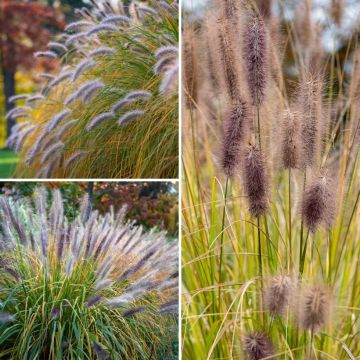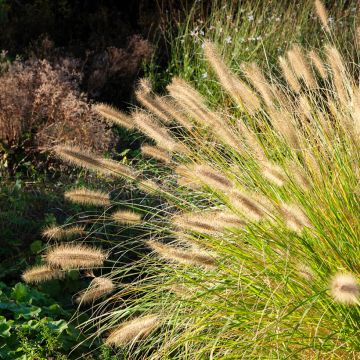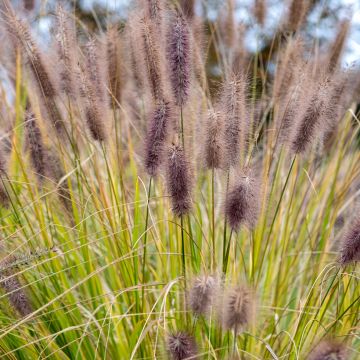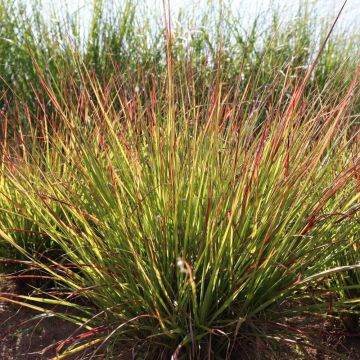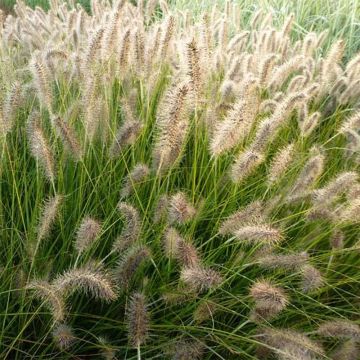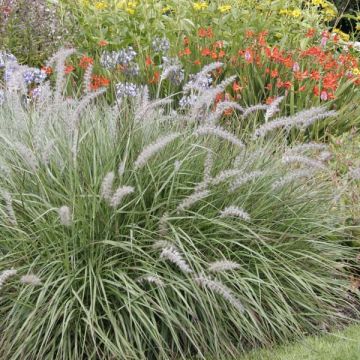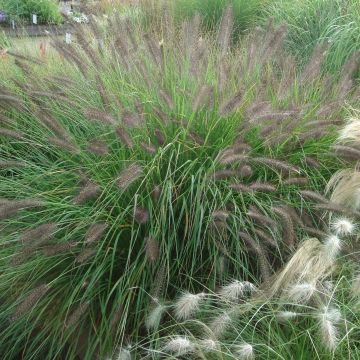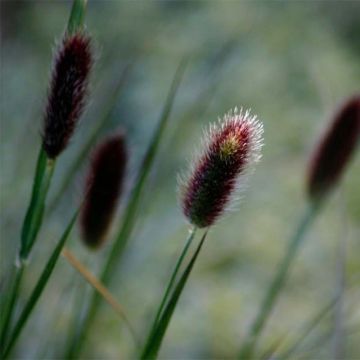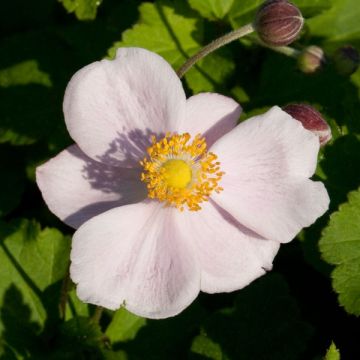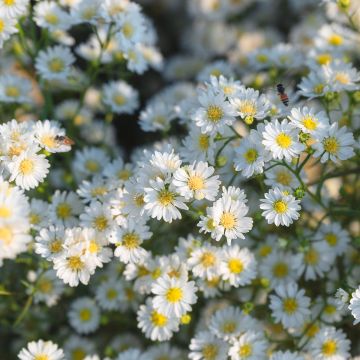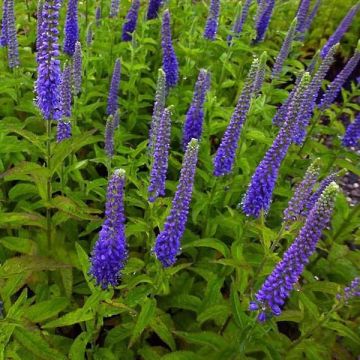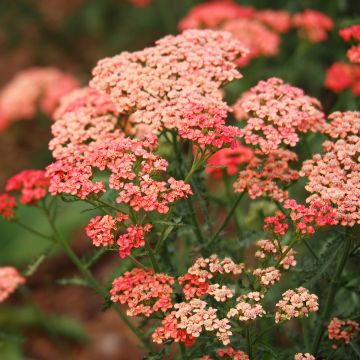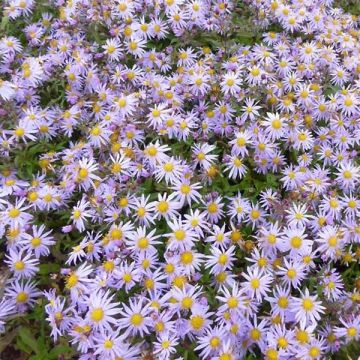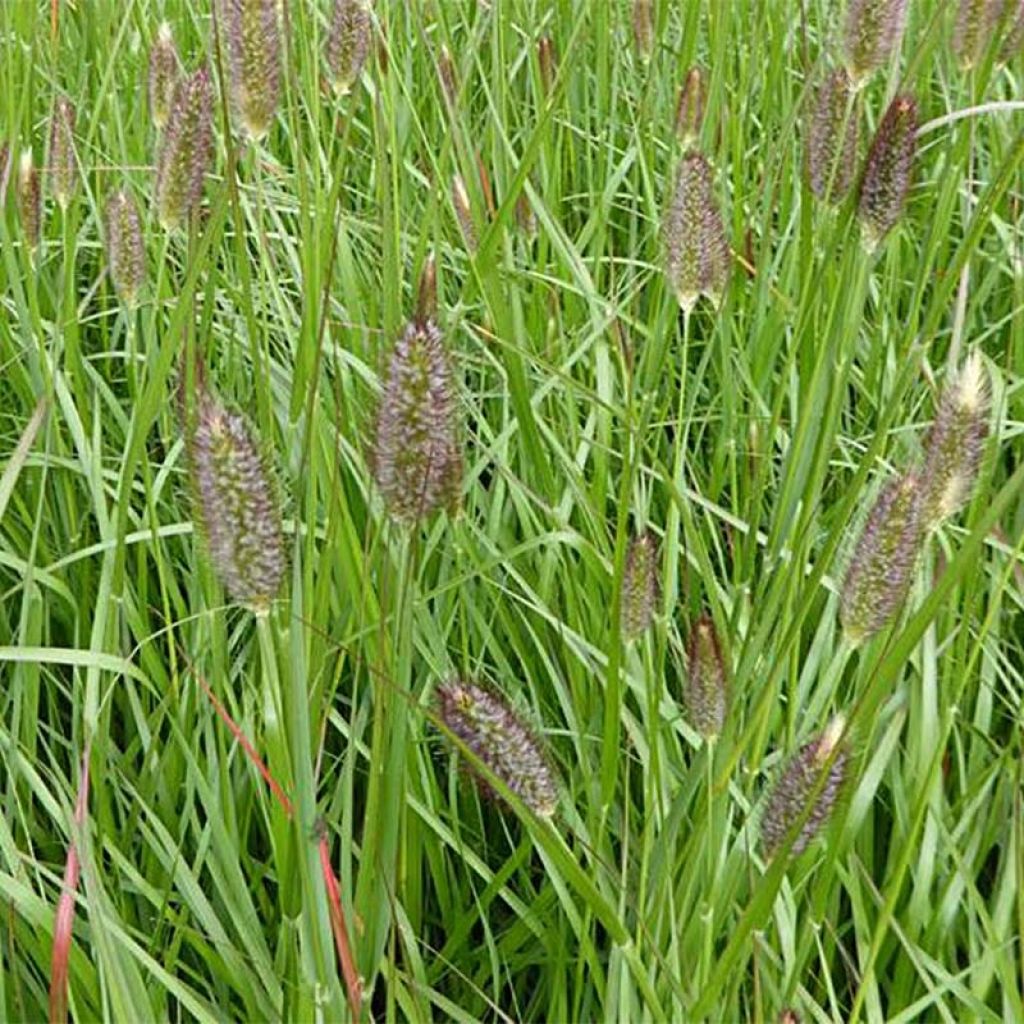

Pennisetum massaicum Red Bunny Tail - African feather Grass
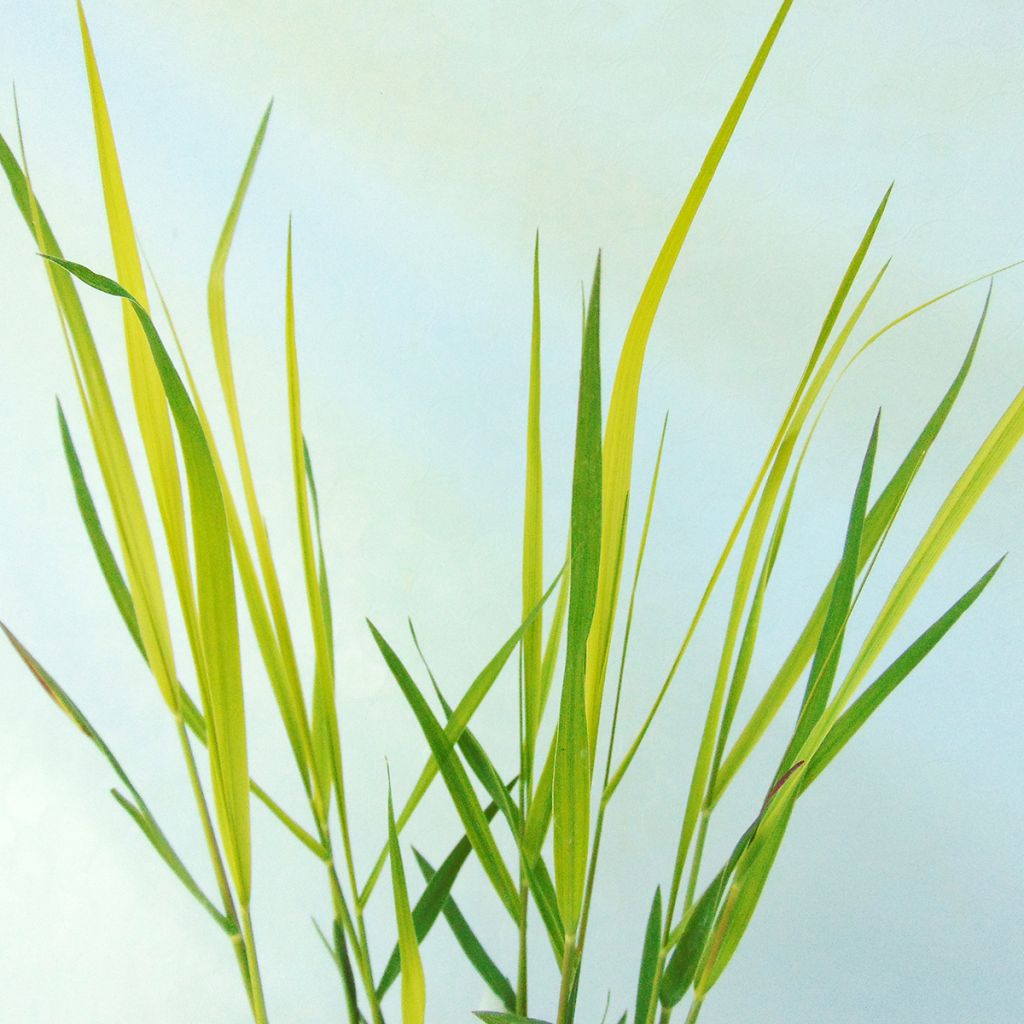

Pennisetum massaicum Red Bunny Tail - African feather Grass
Pennisetum massaicum Red Bunny Tail - African feather Grass
Pennisetum massaicum Red Bunny Tail
African feather Grass
Everything is very good.
Colette C., 12/10/2018
Special offer!
Receive a €20 voucher for any order over €90 (excluding delivery costs, credit notes, and plastic-free options)!
1- Add your favorite plants to your cart.
2- Once you have reached €90, confirm your order (you can even choose the delivery date!).
3- As soon as your order is shipped, you will receive an email containing your voucher code, valid for 3 months (90 days).
Your voucher is unique and can only be used once, for any order with a minimum value of €20, excluding delivery costs.
Can be combined with other current offers, non-divisible and non-refundable.
Home or relay delivery (depending on size and destination)
Schedule delivery date,
and select date in basket
This plant carries a 12 months recovery warranty
More information
We guarantee the quality of our plants for a full growing cycle, and will replace at our expense any plant that fails to recover under normal climatic and planting conditions.

Would this plant suit my garden?
Set up your Plantfit profile →
Description
The Pennisetum massaicum 'Red Bunny Tail', derived from an African Feather Grass, is a rather rare perennial grass, appreciated for its beautiful dark red flowering, earlier than that of usual varieties. This 'grass' with a dense, upright habit and modest in size chooses the beginning of summer to adorn itself with small feathery cylinders, brown in colour, equipped with long bristles that are pink to dark red, surpassing a tuft of very fresh green foliage. Relatively hardy, this plant tolerates all well-drained soils, even dry soils in summer, and prefers a sunny situation but tolerates partial shade. Colourful, appealing and highly decorative, it can be used in borders, as well as an annual in flower pots.
The Pennisetum massaicum is a non-spreading, non-invasive rhizomatous grass native to African savannas, from southern North Africa to northern East Africa and up to Somalia. It belongs to the large family of poaceae. The red 'Red Bunny Tail' feather grass, from which it descends, forms a beautiful cluster of leaves and spikes, reaching a height of 80 cm (32in) in flowers and a width of about 60 cm (24in). The foliage persists in mild climates, but dries up everywhere else in winter. The basal tuft is composed of flat, thin, long, slightly stiff leaves, of a beautiful light and vivid green. The flowering culms emerge from the vegetation in early summer, in June-July depending on the climate, bearing from July to September inflorescences composed of very silky spikelets, gathered in small, thick, upright plumes, 6 cm (2in) long. Their colour evolves from a summer brown-pink to a dark brown-purple in August. The plant remains decorative during part of the winter when the remnants of its entirely beige vegetation is covered with frost. Its stump will withstand short frosts of about -12/-15°C in well-drained soil, under protective mulch.
This unusual variety also expresses all its delicacy by slipping amongst slightly stiff perennials, such as dahlias, tritomas or pérovskias, and brings an additional grace to any landscape, including terrace decor. It can also be mass planted, to border a pathway. The small red 'rabbit tails' of 'Red Bunny Tail' are enhanced by the blue flowering of catmints or perennial salvias.
Pennisetum grasses provide movement to borders, judiciously placed between the stones of a large rockery or above a low wall. These grasses take on an astonishing dimension in low light and emphasize transparency in all perspectives, even in the smallest of gardens. In a flower meadow or along a pathway, do not deprive yourself of your sense of touch either: their plumes are as silky to the touch as they are to appearance. More prosaically, Pennisetum also has the advantage of stabilizing soils through its very dense root system.
Report an error about the product description
Pennisetum massaicum Red Bunny Tail - African feather Grass in pictures
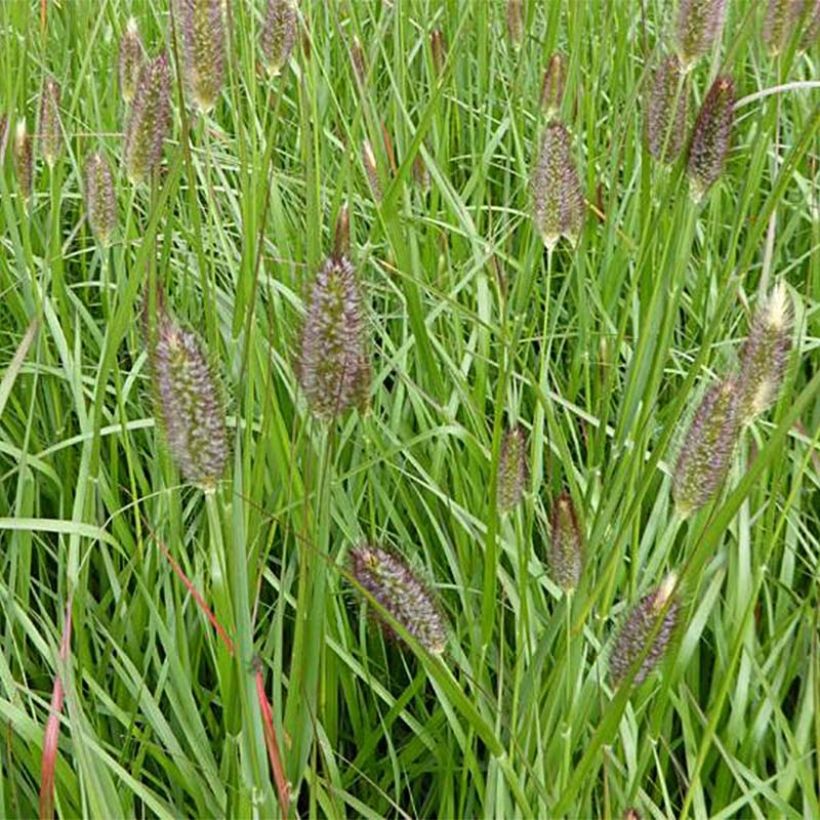

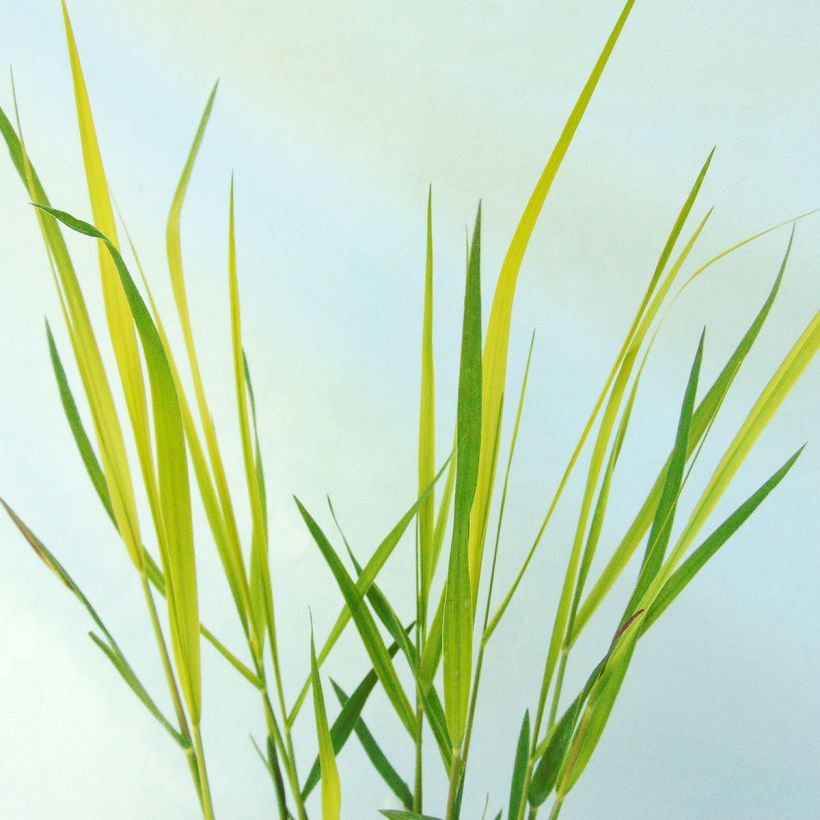

Flowering
Foliage
Plant habit
Botanical data
Pennisetum
massaicum
Red Bunny Tail
Poaceae
African feather Grass
Cultivar or hybrid
Other Pennisetum
View all →Planting and care
Plant the Pennisetum massaicum 'Red Bunny Tail' in a planting hole of 20 cm (8in) x 20 cm (8in) x 20 cm (8in), in full sun. This plant prefers light and well-drained soils, from moist to drier, slightly acidic, neutral or alkaline. Once established, the plant can survive without watering in summer, except dry regions where watering every 15 days is welcomed. If your soil is heavy, mix some coarse sand, gravel, and compost with the crumbled soil. Partially fill the hole and place your bucket (having removed the pot) so that the top of the plant's root ball is covered with 3 cm (1in) of soil. Firm the soil and water thoroughly to eliminate air pockets. If the weather is dry, regular watering will be necessary for a few weeks to facilitate the establishment of your plant. Grasses remain decorative throughout the year but renew their foliage in spring, so we recommend pruning your plants to 10 cm (4in) in late January, early February to create space for new foliage.
Planting period
Intended location
Care
-
, onOrder confirmed
Reply from on Promesse de fleurs
Similar products
Haven't found what you were looking for?
Hardiness is the lowest winter temperature a plant can endure without suffering serious damage or even dying. However, hardiness is affected by location (a sheltered area, such as a patio), protection (winter cover) and soil type (hardiness is improved by well-drained soil).

Photo Sharing Terms & Conditions
In order to encourage gardeners to interact and share their experiences, Promesse de fleurs offers various media enabling content to be uploaded onto its Site - in particular via the ‘Photo sharing’ module.
The User agrees to refrain from:
- Posting any content that is illegal, prejudicial, insulting, racist, inciteful to hatred, revisionist, contrary to public decency, that infringes on privacy or on the privacy rights of third parties, in particular the publicity rights of persons and goods, intellectual property rights, or the right to privacy.
- Submitting content on behalf of a third party;
- Impersonate the identity of a third party and/or publish any personal information about a third party;
In general, the User undertakes to refrain from any unethical behaviour.
All Content (in particular text, comments, files, images, photos, videos, creative works, etc.), which may be subject to property or intellectual property rights, image or other private rights, shall remain the property of the User, subject to the limited rights granted by the terms of the licence granted by Promesse de fleurs as stated below. Users are at liberty to publish or not to publish such Content on the Site, notably via the ‘Photo Sharing’ facility, and accept that this Content shall be made public and freely accessible, notably on the Internet.
Users further acknowledge, undertake to have ,and guarantee that they hold all necessary rights and permissions to publish such material on the Site, in particular with regard to the legislation in force pertaining to any privacy, property, intellectual property, image, or contractual rights, or rights of any other nature. By publishing such Content on the Site, Users acknowledge accepting full liability as publishers of the Content within the meaning of the law, and grant Promesse de fleurs, free of charge, an inclusive, worldwide licence for the said Content for the entire duration of its publication, including all reproduction, representation, up/downloading, displaying, performing, transmission, and storage rights.
Users also grant permission for their name to be linked to the Content and accept that this link may not always be made available.
By engaging in posting material, Users consent to their Content becoming automatically accessible on the Internet, in particular on other sites and/or blogs and/or web pages of the Promesse de fleurs site, including in particular social pages and the Promesse de fleurs catalogue.
Users may secure the removal of entrusted content free of charge by issuing a simple request via our contact form.
The flowering period indicated on our website applies to countries and regions located in USDA zone 8 (France, the United Kingdom, Ireland, the Netherlands, etc.)
It will vary according to where you live:
- In zones 9 to 10 (Italy, Spain, Greece, etc.), flowering will occur about 2 to 4 weeks earlier.
- In zones 6 to 7 (Germany, Poland, Slovenia, and lower mountainous regions), flowering will be delayed by 2 to 3 weeks.
- In zone 5 (Central Europe, Scandinavia), blooming will be delayed by 3 to 5 weeks.
In temperate climates, pruning of spring-flowering shrubs (forsythia, spireas, etc.) should be done just after flowering.
Pruning of summer-flowering shrubs (Indian Lilac, Perovskia, etc.) can be done in winter or spring.
In cold regions as well as with frost-sensitive plants, avoid pruning too early when severe frosts may still occur.
The planting period indicated on our website applies to countries and regions located in USDA zone 8 (France, United Kingdom, Ireland, Netherlands).
It will vary according to where you live:
- In Mediterranean zones (Marseille, Madrid, Milan, etc.), autumn and winter are the best planting periods.
- In continental zones (Strasbourg, Munich, Vienna, etc.), delay planting by 2 to 3 weeks in spring and bring it forward by 2 to 4 weeks in autumn.
- In mountainous regions (the Alps, Pyrenees, Carpathians, etc.), it is best to plant in late spring (May-June) or late summer (August-September).
The harvesting period indicated on our website applies to countries and regions in USDA zone 8 (France, England, Ireland, the Netherlands).
In colder areas (Scandinavia, Poland, Austria...) fruit and vegetable harvests are likely to be delayed by 3-4 weeks.
In warmer areas (Italy, Spain, Greece, etc.), harvesting will probably take place earlier, depending on weather conditions.
The sowing periods indicated on our website apply to countries and regions within USDA Zone 8 (France, UK, Ireland, Netherlands).
In colder areas (Scandinavia, Poland, Austria...), delay any outdoor sowing by 3-4 weeks, or sow under glass.
In warmer climes (Italy, Spain, Greece, etc.), bring outdoor sowing forward by a few weeks.






























